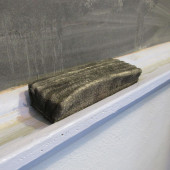Our website uses cookies so we can analyse our site usage and give you the best experience. Click "Accept" if you’re happy with this, or click "More" for information about cookies on our site, how to opt out, and how to disable cookies altogether.
We respect your Do Not Track preference.

Minister of Internal Affairs Peter Dunne said today that he wanted the Clean Slate Act reviewed to make sure it was working properly.
The Clean Slate Act is a piece of legislation specifying that people can have the details of certain relatively minor offences suppressed, as long as they avoid a subsequent conviction for seven years.
Minister Dunne would like to see this scope expanded. A significant number of convictions – such as those requiring a custodial sentence or a license suspension – are not covered. This creates a situation where people have to disclose convictions from 20 or more years ago to potential employers, even if they have stayed out of trouble in the interim. Examples include drink-driving convictions where the individual had his or her license suspended.
Minister Dunne intends to write to Justice Minister Amy Adams about this issue. She has indicated that while she has yet to hear from him, she is open to looking at the law to make sure that it is still working.
Clean slates and news media
We welcome the Minister’s enthusiasm to look at the law, because there’s another component that deserves investigation and possible change. A number of newspapers in New Zealand have a practice of publishing the names and conviction details of everyone prosecuted in the local court. This includes those convictions covered by the Clean Slate Act.
This effectively nullifies the intended effect of the Act for these people, as most newspapers are now online as well as in print. A quick Google search for someone’s name can unearth details that were suppressed by the Clean Slate Act.
Further, the newspapers that publish the details of petty crime tend to be in smaller towns, as it’s impractical for larger metropolitan newspapers to print the details of every conviction. So the Clean Slate Act effectively increases the consequences of relatively minor offences for people who live in small towns. This does not seem fair, particularly in the context of the economic opportunity gap between urban and rural New Zealand.
This issue is one of the loose collection of issues covered by the still-developing idea of the “right to be forgotten,” which we wrote about in 2014. That is, the idea that some public information might become private after a certain amount of time has passed.
The Clean Slate Act was one of New Zealand’s first “right to be forgotten” laws. Perhaps it is time to look at what responsibility media have to let people move on. If a quick Google search is all it takes to find someone’s past transgressions, then in practical terms, their slate isn’t very clean at all.
Image credit: John Phelan via Wikimedia Commons
Back